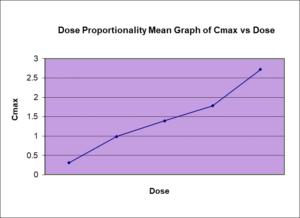Which Requirements Must Be Met to Conduct First-in-human Clinical Trials?

First in Human Clinical trials (FIH trials) play a critical role in bringing investigational new drugs or interventions to the clinical practice. To ensure the safety of study participants, FIH trials are preceded by preclinical tests in in vitro and in vivo experimental models. There are four phases of first in human clinical trials, and the drug candidates are generally approved after the third phase if they are found safe and effective.
Phase 1 clinical trials are conducted in a small group (20–80) of individuals to determine an investigational drug’s safety and adverse effects and identify its appropriate dose.[i] Early Phase 1 clinical trials provide data on the safety of drug candidates in humans, as well as indications regarding their mechanism of action. More advanced Phase 1 clinical studies deliver further data on the pharmacological effects of the drug candidate in humans, its metabolism, adverse effects associated with dose acceleration, and possibly early effectiveness data.
First-in-human (FIH) clinical trials are the initial Phase 1 studies and thus pose significant challenges regarding their design and safety.
What are first-in-human clinical trials?
First-in-human clinical trials, also known as FIH trials, are studies during which a drug is administered to humans for the first time after it’s testing in in vitro and in vivo preclinical, experimental models.[ii] They are most often performed with healthy volunteers. However, if drug candidates that present serious health risks are investigated, such as certain antitumor drugs, patients who cannot readily benefit from the available therapies are assessed.[iii]
Even with careful planning and preclinical data collection, there are inherent risks and challenges associated with first-in-human clinical trials. Thus, the extensive expertise of the medical and scientific personnel conducting the studies is key. Generally, a multidisciplinary team conducts FIH trials, including a clinical pharmacologist, a safety physician, a formulation scientist, a clinical development scientist, a clinical operation specialist, a toxicologist, and a regulatory affair specialist.[iv]
Challenges Associated With FIH Trials
Since these studies represent the first administration of an investigational drug in humans, they are associated with inherent challenges, especially safety. Moreover, all clinical trials are evolving, presenting progressively more complex designs, and this also renders first-in-human clinical trial design more complex and challenging. In addition, the sample size of first-in-human studies is generally small, enabling the observation only of effects that occur very often.[iv]
Finally, a number of additional factors may influence the design of first-in-human clinical trials, including the presence or absence of biomarkers, the suitability of the selected preclinical models, and the demographic characteristics of the study participants. However, regardless of the specifics of the study design, participants’ safety should always be an utmost priority when conducting an FIH trial.
Prerequisites for First-in-Human Clinical Trials
A FIH trial must meet the following prerequisites:
Data on the Quality of the Investigated Drug
The quality of the administered pharmaceutical formulation should be extensively evaluated before initiating the clinical trial. This assessment includes:
- data on the strength and potency of the investigated drug;
- characterization of its heterogeneity, impurities, and degradation; and
- findings on its suitability to deliver the intended dose.[v]
A Comprehensive Preclinical In Vivo Study
A preclinical study on an in vivo animal model should be conducted to assess the safety and efficacy of a drug candidate before initiating a human study. It should generally include toxicological, pharmacokinetic, and pharmacodynamic data. The selection of an animal species and model is critical in this context. The animal species and model are selected based on similarities to the expected human biological response to the drug of interest.[iii]
In vitro models, including human cells and tissues, may supplement the information regarding a drug’s potential effect on humans.[iii] However, there are challenges in extrapolating the preclinical data to humans and a risk that the animal model does not encompass all characteristics of a medical condition affecting humans.
Characteristics of First-in-Human Clinical Trials
Important aspects of FIH trials include the selection of a starting dose, a dose acceleration schedule, the study duration, and the administration route of the study drug.[iii, iv, v]
Starting Dose Selection
The starting dose selection should be performed after taking into consideration a number of parameters. First, the starting dose should reduce the risk of toxicity. However, it is also essential to identify a dose that can induce pharmacologic activity in subsequent studies.
The U.S. Food and Drug Administration (FDA) has provided guidance regarding the selection of a starting dose for first-in-human studies.[vi] To determine the maximum starting dose, it has recommended converting the no observed adverse effect levels (NOAELs) from the conducted animal studies into human equivalent doses (HEDs) using standard factors.
Subsequently, a safety factor should be employed to derive the maximum recommended starting dose (MRSD) from the HED of the most relevant species. This approach has been designed to determine the maximum suggested starting dose, even though lower starting doses may also be suitable in some first-in-human clinical trials.[vi]
Dose Acceleration
Next, the dose range and dose acceleration schedule should be determined. Sequential dosing, which entails an observational period between the drug administration in each individual, helps the study team to identify and react faster to unexpected adverse effects of the study drug. The data collected on the dose range facilitates the selection of doses to investigate the efficacy of the study drug in subsequent phases of the clinical trial.
Study Duration
The study duration is dependent on the investigated drug and its expected effects.
Administration Route
Finally, the administration route should be determined. The selection of the administration route is important because it may profoundly influence the observed effects of the drug candidate. Moreover, it may affect the ease or difficulty with which the study team may intervene.
Risk Mitigation Measures and Study Monitoring
The study monitoring and risk mitigation strategy should be predetermined and supported by a well-defined rationale. However, the strategy should also be adaptive and responsive to the emerging data.[v] Thus, there should be clear criteria regarding the handling of adverse effects and guidelines for stopping the trial or for progressing with the dose acceleration.
BioPharma’s Extensive Expertise in Early-Phase Clinical Trials
BioPharma Services Inc.’s scientific team has profound knowledge and expertise in early-phase clinical trials, including first-in-human clinical trials. We support our clients in an individualized manner, based on the specific needs of their studies and the extent of their previous experience.
Generally, we review the preclinical data files and give our clients feedback and suggestions regarding the safety aspects of the study. Moreover, we assist them with identifying a safe starting dose for the first-in-human clinical trial and the creation of the pharmacokinetic design for the human ascending dose trial.
Extensive Volunteer Database and State-of-the-Art Facilities
Our study team has experience with studies on healthy volunteers and special study populations, including recreational drug users and age- and gender-restricted populations. Our state-of-the-art facilities for Phase 1 clinical trials are located in Toronto, Canada and St. Louis, Missouri.
We also have an in-house bioanalytical laboratory conducting a wide range of bioequivalence (BE) and bioavailability (BA) studies. Altogether, the expertise of our team and our state-of-the-art facilities position us perfectly to fulfill all early-phase drug developmental needs of our clients.
Experience With Challenging Studies With Various Routes of Administration
Our multidisciplinary team has experience conducting challenging studies with various routes of administration, including oral, intravenous, and intraperitoneal administration. Our collaborative network of experts enables us to accommodate the unique needs of client studies, including challenging routes of administration.
First-in-human clinical trials present significant challenges, especially concerning participants’ safety. Partnering with an experienced clinical trial services company like BioPharma will streamline the conduct of your first-in-human clinical trial and ensure all of its aspects are carried out in compliance with the regulatory guidelines and with the highest quality. Contact us today to learn more about partnering with us as your next clinical trial services company and clinical research organization (CRO).
Find out why BioPharma might be the right partner for you! Learn more about BioPharma and the wide array of bioanalytical services we provide.
BioPharma Services, Inc., a Think Research Corporation and clinical trial services company, is a full-service Contract Clinical Research Organization (CRO) based in Toronto, Canada, specializing in Phase 1 clinical trials 1/2a and Bioequivalence clinical trials for international pharmaceutical companies worldwide. BioPharma has clinical facilities both in the USA and Canada with access to healthy volunteers and special populations.



